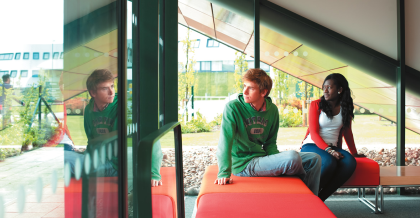
January 3, 2014, by Helen Whitehead
How reflection can help your learning in a MOOC
One of the most important tools for any learner to get the most out of their studying is reflection. This is especially useful in situations where learning is to a large degree self-controlled or is directed towards professional development. It could be said that the capacity to reflect on action so as to engage in a process of continuous learning is one of the defining characteristics of professional practice.
Reflection can help the learner to:
- better understand their strengths and weaknesses
- identify and question their underlying values and beliefs
- acknowledge and challenge possible assumptions on which they base their ideas, feelings and actions
- recognise areas of potential bias or discrimination
- acknowledge fears, and
- identify possible inadequacies or areas for improvement.
A reflective learner is someone who explores their experiences of learning to better understand how they learn with a view ultimately to improve their further learning. This is a core skill in learning to learn and the bedrock of becoming a “lifelong learner”.
Reflective learners are likely to be:
- more self-aware and self-critical (a first step to positive change);
- honest about themselves, and open to criticism and feedback;
- objective in weighing up evidence;
- open to, and prepared to try, different approaches;
- curious to discover other approaches, motivated to improve, and more able to carry through independent learning.
For the ‘Sustainability Society and You’ MOOC starting on January 6th through FutureLearn, we have the advantage of a platform providing a number of ways for students to post reflections and/or share them. As well as the discussions themselves, every item of learning material on FutureLearn has the feature to add associated comments. We have designed the course to take advantage of these features, and the probability that many of our students may already have or be prepared to start keeping a blog which can be used for reflection.
Every item has either a discussion topic or a “Think about” prompt to encourage reflection either privately, in the comments on the page or in a blog.
Think about: your expectations of the Sustainability, Society and You course (or whatever course you have chosen) and your own learning goals (large or small) in taking it.
No comments yet, fill out a comment to be the first

Leave a Reply